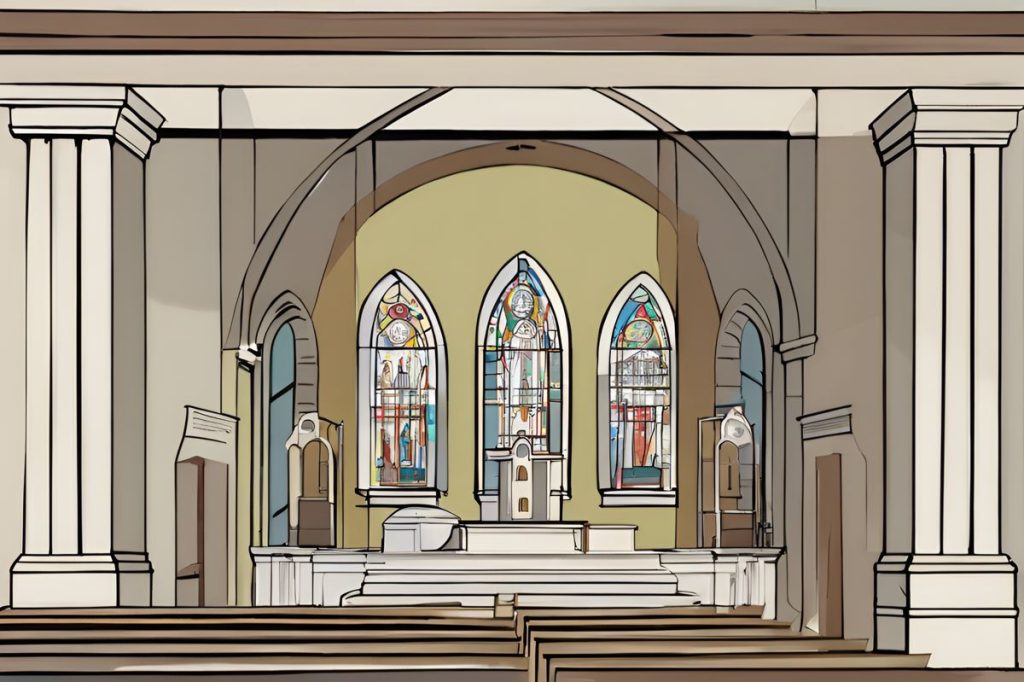The church is embroiled in allegations of money laundering involving monks boosting donations through social media and Russian oligarchs funneling questionable funds, with a safe containing €800,000 found at Osiou Avvakoum monastery intensifying scrutiny on financial transparency and political ties.
Political pressure has increased as investigators look into potential criminal offenses, leading to calls for a closer examination of the church’s financial dealings amidst controversy involving prominent figures and questionable donations, underscoring the urgent need for transparency and accountability within the institution.
What are the allegations of money laundering within the church?
The church is facing allegations of money laundering, with monks accused of using social media to boost donations and Russian oligarchs suspected of funneling unclean money. A safe with €800,000 at Osiou Avvakoum monastery and links to controversial figures have intensified scrutiny on the church’s financial transparency and political influence.
Political Pressure and Legal Scrutiny
The unfolding scandal surrounding allegations of misconduct by monks has intensified political scrutiny, leading to decisive action from the attorney-general’s (AG) office. Two investigators, Ninos Kekkos and George Papaioannou, were appointed to delve into potential criminal offenses tied to the case. This move underscores the government’s resolve to uncover the truth, as Justice Minister Marios Hartsiotis has publicly reinforced the state’s dedication to thoroughly probing the scandal and reinforcing the investigative team.
Amidst this turmoil, members of parliament have urged the money laundering unit (Mokas) to cast a critical eye on the church’s finances. Recent findings have brought to light the monks’ use of paid social media campaigns aimed at boosting donations—a tactic that has raised eyebrows and questions about the legitimacy of their funding sources.
The Monastery’s Mysterious Millions
In a shocking discovery, a safe box holding a staggering €800,000 in cash was located at the Osiou Avvakoum monastery. Rather than being immediately seized by authorities, the cache was transported to the Tamassos bishopric for counting, a decision that has been met with disbelief and criticism, particularly from Disy MP Demetris Demetriou. The vast sum, alongside the property and investments linked to the monastery, has sparked concerns over potential money laundering activities.
The church, under current tax regulations, must declare income from its businesses; however, the stipulations for declaring donations are considerably more relaxed. This discrepancy has not gone unnoticed, with MP Irene Charalambides expressing the urgent need to scrutinize the church’s financial dealings. Allegations have arisen that Russian oligarchs could be funneling unclean money through donations, a practice that has yet to be thoroughly investigated.
Controversial Connections and Calls for Accountability
The scandal has widened as prominent figures, including the far-right Elam party leader Christos Christou and ex-police chief Kypros Michaelides, have been implicated. Grave accusations have surfaced against Mokas and the police, questioning their effectiveness and integrity in handling such sensitive matters.
The controversy has even extended to Cyprus’ first “Russian-style church,” built and funded by businessman Vyacheslav Zarenkov, whose contributions also include a planetarium. MP Charalambides pointedly questioned the legitimacy of these funds, especially in the wake of ties to Jho Low, a Malaysian businessman whose hefty donation to the church purportedly led to the archbishop aiding him in acquiring a Cypriot passport.
The Church’s Influence and Oversight
The discussion around the church’s financial transparency—or lack thereof—continues to be a contentious issue. The church’s potent combination of financial clout and political sway has drawn critical observation, with many calling for a reassessment of its role and the special treatment it seemingly enjoys.
Despite the pressing concerns, efforts to table the matter of financial exploitation of religious faith by political party Akel were stonewalled in parliament. The church’s enduring influence was also highlighted in leaked videos revealing unbecoming behavior by the monks involved in the scandal, further triggering public outcry and demands for a rigorous examination of the church’s financial dealings.
In the face of these allegations, the investigative spotlight has never been more focused on the church’s activities. With political, legal, and public pressures converging, the need for transparency and accountability within these revered institutions has become a matter of both moral and legal imperative.
What are the allegations of money laundering within the church?
The church is facing allegations of money laundering, with monks accused of using social media to boost donations and Russian oligarchs suspected of funneling unclean money. A safe with €800,000 at Osiou Avvakoum monastery and links to controversial figures have intensified scrutiny on the church’s financial transparency and political influence.
How has political pressure and legal scrutiny impacted the investigation?
The unfolding scandal surrounding misconduct by monks has intensified political scrutiny, leading to decisive action from the attorney-general’s (AG) office. Two investigators were appointed to delve into potential criminal offenses tied to the case. Members of parliament have urged the money laundering unit (Mokas) to cast a critical eye on the church’s finances. The government’s resolve to uncover the truth has been reinforced, with calls for transparency and accountability within the institution.
What is the significance of the mysterious €800,000 found at the Osiou Avvakoum monastery?
The discovery of a safe box holding €800,000 at the Osiou Avvakoum monastery has raised concerns over potential money laundering activities within the church. The decision to transport the cash to a bishopric for counting has been met with criticism, highlighting discrepancies in declaring income from businesses versus donations. Allegations of Russian oligarchs funneling unclean money through donations have yet to be thoroughly investigated.
How have controversial connections and calls for accountability impacted the scandal?
Prominent figures, including party leaders and businessmen, have been implicated in the scandal, questioning the effectiveness and integrity of investigative bodies. The controversy has extended to the construction of a “Russian-style church” funded by a businessman with ties to a Malaysian businessman. Calls for accountability and scrutiny of the church’s financial dealings have intensified, emphasizing the need for transparency and oversight within the institution.

